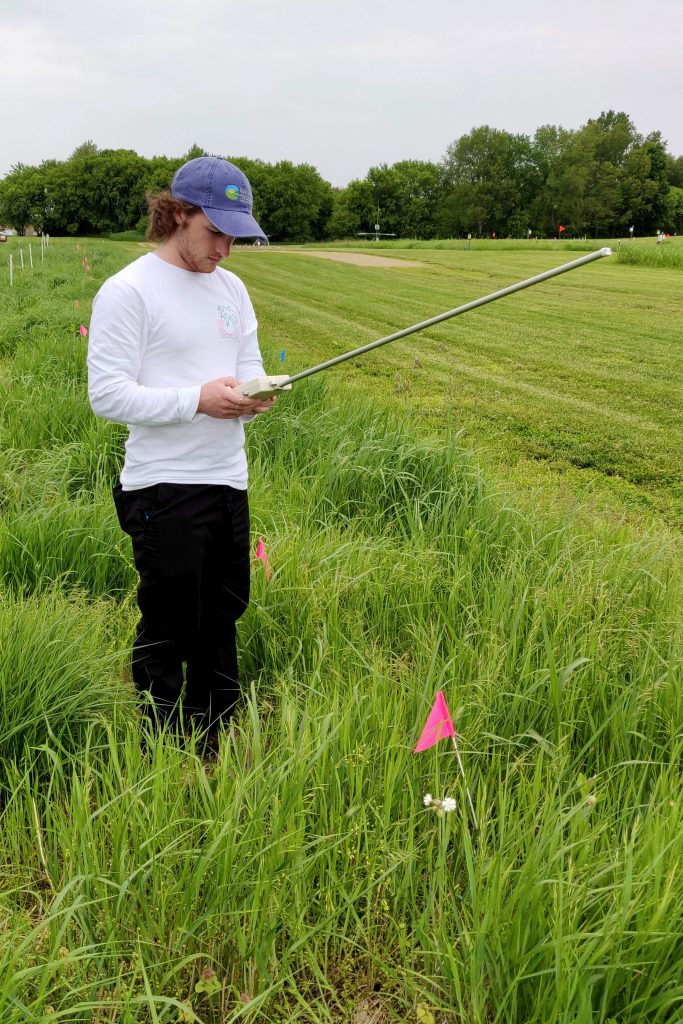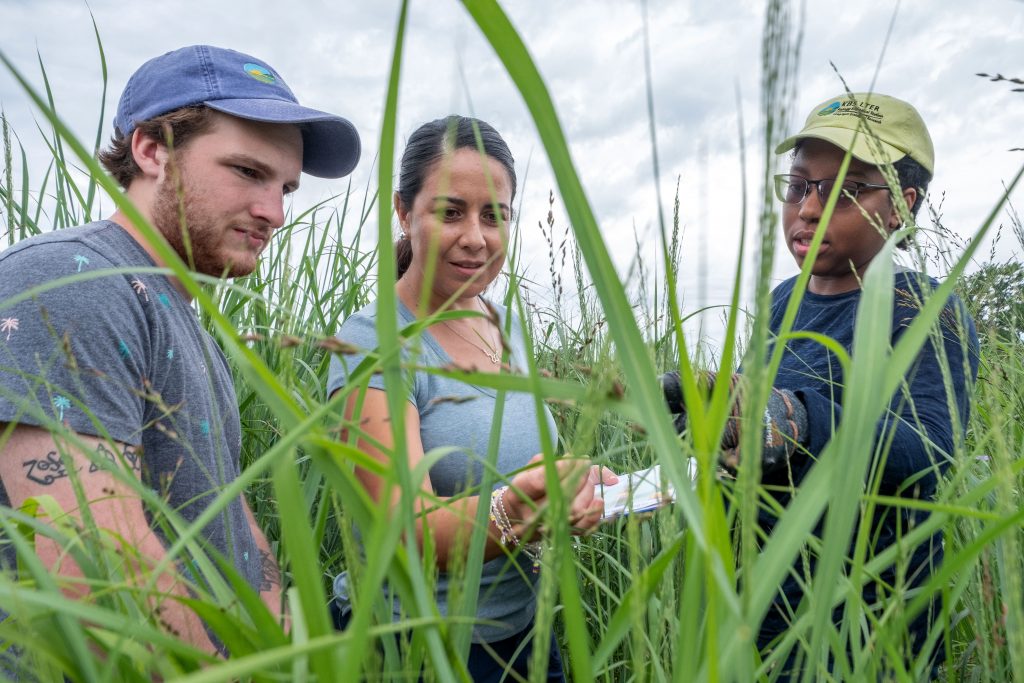Cool morning dew sparkled off an army of deep green blades; somewhere close an abrupt rustle originated. The green sea parted, a young fawn appeared, and the world became still for only a moment. Experiencing a research summer at the W.K. Kellogg Biological Station isn’t only about understanding the natural world but appreciating it as well.
Over my 22 years on planet Earth, I have developed a deep passion, appreciation and concern for the natural environment that surrounds us. Having worked many occupations and places—from fast food restaurants to greenhouse facilities—I have struggled to know that countless hours of my life have been spent to serve the purpose of profit, not our environment. Researching at KBS gave me an opportunity to participate in different activities that helped me to expand my knowledge and become more ecologically conscious. If you are going to spend every day doing something, make it something that makes a difference.
I spent the summer working in the Robertson lab under the mentorship of Dr. Carolina “Caro” Cordova. The research subject area was focused at the Great Lakes Bioenergy Research Center on the biogeochemistry of energy crops, and more specifically, the cycling of nitrogen in agricultural systems. Mainly, my work involved species of switchgrass (Panicum virgatum) and miscanthus (Miscanthus x giganteus). My personal research concentrated on the effects of nitrogen fertilization on light-harvesting factors in both crops, with the question of importance being, “How much does nitrogen fertilization really affect light-harvesting factors in switchgrass and miscanthus? And how does this change between crops?”
In order to analyze this question, I looked at changes in leaf area (how much light is intercepted) and chlorophyll concentration (how much light can be absorbed) between nitrogen-fertilized plants and non-fertilized plants. This mainly involved spending my time in the switchgrass and miscanthus fields in the (unfortunately) sweltering heat, but also in the beautiful sunshine and among a surprising amount of wildlife. Much other time was spent working with Caro on projects involving differences in development between switchgrass varieties and nitrogen fixation in switchgrass.
Why study switchgrass?
Why is this important, you may ask? The use of synthetic nitrogen fertilizers in agriculture is an environmentally costly process; from the fossil fuel-heavy production of the fertilizer itself to the emission of nitrous oxide (a powerful greenhouse gas) due to its addition in the field. Understanding natural processes that can help us to reduce the need for synthetic nitrogen fertilizer as well as how to grow more efficient crops for biofuel provides a double-edged research area to help combat fossil fuel use, greenhouse gas emissions and overall climate change, while supporting biofuel production and energy security.
In addition to learning to become a thorough scientist, this experience has provided a friendly and diverse community of peers, teachers and friends. There is always something to do at KBS: attending an ecological seminar, dining with friends, visiting new places, strolling in the wildflowers, or even just taking some time to relax in a hammock on the lake. KBS has beautiful grounds with enough interesting plants and playful wildlife that it would be hard for anyone to not “stop and smell the roses.”
This summer at KBS has encouraged me to further pursue graduate education, a scientific career and my love for nature. I will be endlessly thankful for this opportunity and for being selected among a long list of applicants. Indeed, I had a great summer at KBS!
~~~~~~~~~~~~~~~~~~~~
Colin McHugh is a sophomore at Kalamazoo Valley Community College, studying biochemistry. His KBS mentors were Drs. Carolina Cordova and Phil Robertson. His KBS summer experience was made possible with funding from the National Science Foundation’s Biology Research Experiences for Undergraduates program.



A legacy of conservation; a commitment to sustainability.
3700 E. Gull Lake Drive
Hickory Corners, MI 49060
(269) 671-5117
info@kbs.msu.edu